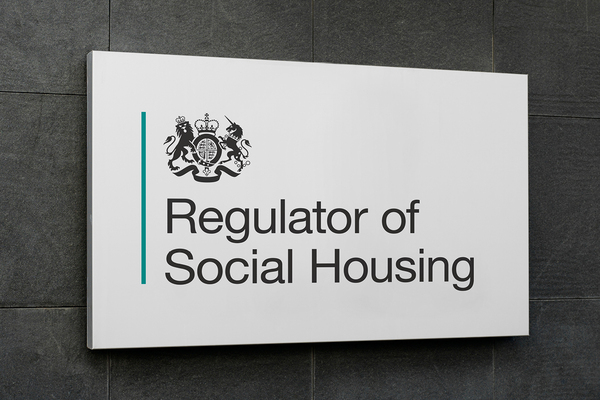You are viewing 1 of your 1 free articles
 Fiona MacGregor
Fiona MacGregorFiona MacGregor was appointed the Regulator of Social Housing’s (RSH) Chief Executive on 1 October 2018.
RSH was previously part ...more
We will continue to support the sector in the difficult times ahead but will take action if needed
The regulator has adapted to the new environment, but providers must continue to keep it informed and to protect the sector’s reputation, writes Fiona MacGregor
We are all now so familiar with the mantra of staying at home, protecting the NHS and saving lives that it’s easy to forget that it’s been a relatively small number of weeks that lockdown has been in place.
Registered providers across the country have responded with real agility and adapted their operations at pace to the unprecedented challenges the coronavirus pandemic has brought.
Right (and rightly) at the forefront of that response has been a clear focus on the safety and well-being of both tenants and staff.
As providers have continued to adapt their response to the evolving circumstances and the challenges those bring, as regulator, we have sought to do the same.
Our key aim continues to be to allow providers to focus on supporting their tenants, staff and communities, while maintaining a proportionate level of oversight and regulation, on both the financial viability and operational sides, to enable us to take timely, supportive action where it is needed.
So we’ve reviewed our operational approach, pausing some activities such as our in-depth assessments and work to upgrade governance grades as well as limiting our requirements on the Value for Money Standard to reporting against the set metrics. Basically, we’re trying not to get in the way or divert providers’ attention from focusing on their frontline services.
We’ve also delayed some of our data returns. The quid pro quo is that we will gather data and information to give us the oversight we need. That includes a clear picture of providers’ financial position and liquidity, which the quarterly survey will allow us to do. And it’s why we’re surveying many providers about how they’re coping on some key operational issues. As well as giving us the oversight we need, the returns we are asking for give us insight, and help us in working closely with government to inform their discussions.
We also stand ready to help where it’s needed. But we cannot do so in a timely way if we do not know where the problems are. So no provider, regardless of size, should wait to complete a survey to tell us if they are getting into difficulties they cannot resolve. If there are any providers that are overwhelmed and where tenant safety is threatened or viability is under strain, you must contact us.
As is always the case, the effectiveness of any organisation’s response to a crisis depends on the quality of its governance. With everyone adapting to new ways of working remotely and a very fast-moving situation, it is essential that governance arrangements are able to cope with the new normal. We have been reassured by reports that providers have managed this shift and have put in place the measures needed, for example holding more frequent, virtual board and committee meetings.
Even (or perhaps especially) in such unprecedented times, reputation matters and maintaining the confidence of tenants and stakeholders is key to that.
It will influence the perception of the sector as we emerge from the current circumstances to whatever the longer-term new normal looks like.
We know that registered providers are often the “anchor” institution in the communities they serve and the role the sector plays in the provision of social care has never been in sharper relief.
“With everyone adapting to new ways of working remotely and a very fast-moving situation, it is essential that governance arrangements are able to cope with the new normal”
At its most basic, working closely with local authorities is in line with the requirements of the Tenancy Standard.
But doing so, along with other partners such as the NHS, has never been higher on providers’ list of priorities, supporting efforts in relation to homelessness, rough sleeping, domestic abuse and enabling hospital discharges of older or vulnerable individuals.
All of these add to the numbers who can stay at home and reduce the spread of coronavirus.
We have been engaging extensively with providers and other stakeholders in recent weeks and have heard many examples of providers really focusing on communicating with their tenants during this period and beyond – whether that is about service provision, welfare or mental health support, or about shaping how their landlord approaches the future post-lockdown.
A continued focus on tenants and tenant engagement will be key to supporting that anchor institution role that providers play in their communities.
Of course we will always maintain an intense focus on providers’ financial viability. How providers are managing financial risk to ensure that they are able to continue to provide valuable services to tenants and communities is more important than ever.
We are closely monitoring the impact of what is happening in the housing markets and any developments in the finance markets. Providers will be doing so too, coupled with a sustained focus on voids and arrears rates and the cash flow impacts of all of these factors.
And as development opens up again, we all want the sector to remain an investable proposition, and we will continue our liaison and dialogue with lenders, ratings agencies and auditors to understand their positions and to allow us to work together to resolve issues where they arise.
We all want to get the sector through this crisis in as good a shape as possible.
As we see the sector move from the immediate crisis response to the new normal, and begin to think about what the world will look like “on the other side” and the challenges that will bring, we will continue our engagement to shape our regulatory approach.
We will assist where needed and seek to ensure the sector emerges able to continue its vital role in supporting tenants and communities. We will continue to be proportionate. But we will not shy from regulatory action if we see clear evidence that it is needed.
Fiona MacGregor, chief executive, RSH











